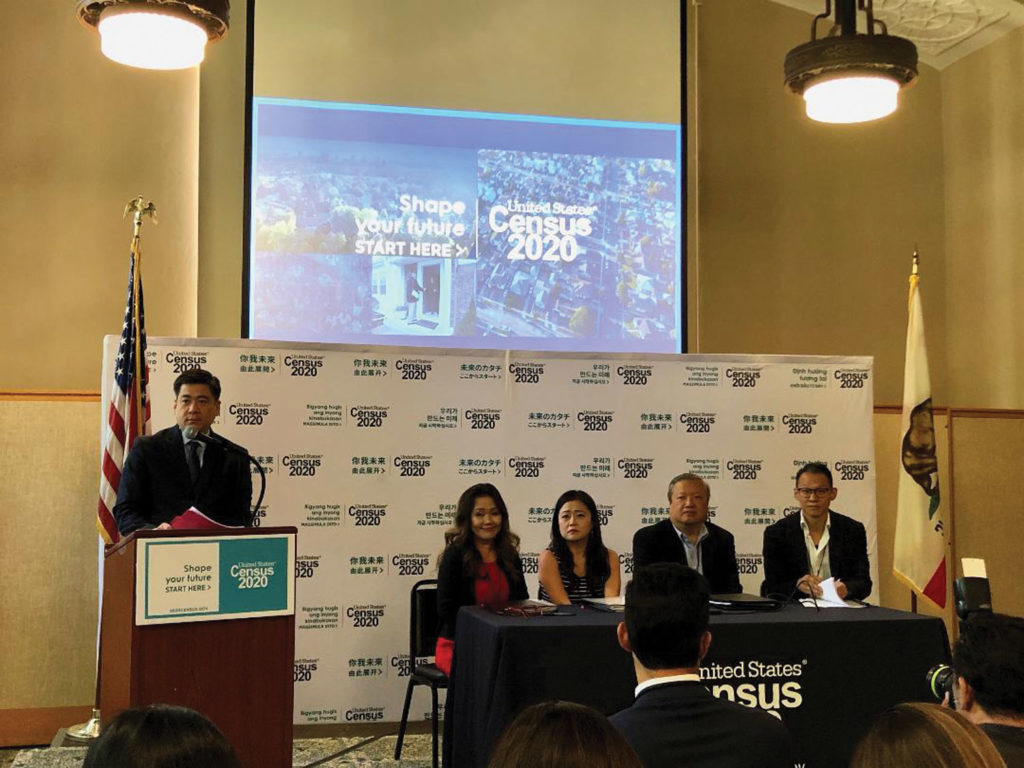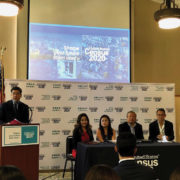
“EASY, safe and important.”
Those are three words officials want the public to remember ahead of the 2020 Census, after various groups raised concerns about confidentiality and accessibility to the questionnaire at a recent event for Asian American and Pacific Islander (AAPI) media in South Pasadena, California.
“Your answers are protected by law…and will not be used against you by law enforcement agencies like [Immigration and Customs Enforcement] (ICE) and the FBI,” Julie Lam, Los Angeles regional director for the U.S. Census Bureau, said.
Under Title 13, Census Bureau employees take an oath to protect the information and offenders will be penalized, Lam added.
The census, which is done every 10 years, will become available in March 2020 when households will be able to respond to the questionnaire online, over the phone or by mail — three available options intended to increase participation.
Some of the questions include how many individuals live at a particular address, whether the home is rented or owned, and age, sex and race/ethnicity of each resident.
AAPIs are the least familiar with the census and are the least likely to report their intention to fill it out, according to a Census Bureau study released earlier this January.
The analysis also found that there are five main barriers that might prevent people from participating: concerns about data privacy and confidentiality; fear of repercussions; distrust in government; lack of efficacy; and belief that there is no personal benefit.
To capture the AAPI population, the Bureau will be launching “an integrated communications campaign,” Lam said, that consists of advertising in five Asian languages, partnerships and trusted influencers.
In August, the Bureau released the Census tagline and logo in 12 languages, including Tagalog: “Bigyang hugis ang inyong kinabukasan. MAGSIMULA DITO (Shape your future. START HERE).”
“The Asian taglines were not intended to simple, direct translations, but instead, developed with careful consideration in a uniquely and culturally way to speak directly to our respective Asian audiences,” said Tim Wang, founder of Asian American audience partner TDW+Co.
Ivy Dulao, a Tagalog spokesperson for the 2020 Census in Los Angeles, highlighted what’s at stake for the Filipino American community.
“The biggest challenge that I expect from the Filipino community…is really not understanding the importance of the census,” Dulao said.
The results from the census help determine the number of seats each state gets in Congress, as well as how over $675 billion in federal funds will be distributed for services like infrastructure and educational grants, for example.
“Census data will tell us who we are and what we need,” Lam said.
Dulao added that in the coming months, building partnerships with key partners, such as schools, churches and non-profits, is a priority as these are voices in the community who can encourage Filipino Americans to fill out the census.
In past rounds, language barriers have hindered various groups from participating, however, the 2020 form will be available in five Asian languages, including Tagalog, Chinese, Japanese, Korean, and Vietnamese. Language guides are also accessible in a total of 59 non-English languages.
Dulao said that in addition to Tagalog, Ilocano is a language option as well.
“That’s why we are also building partnerships with other organizations who have the capacity to speak other languages as well in the community,” she said.
Another way community members can get involved with the census is through flexible job opportunities, such as census takers.
The goal is to count everyone once and in the right place. Field takers will start visiting residents from mid-May to August if they haven’t responded through any of the three options. The official counts are scheduled to be delivered to the president by December.







